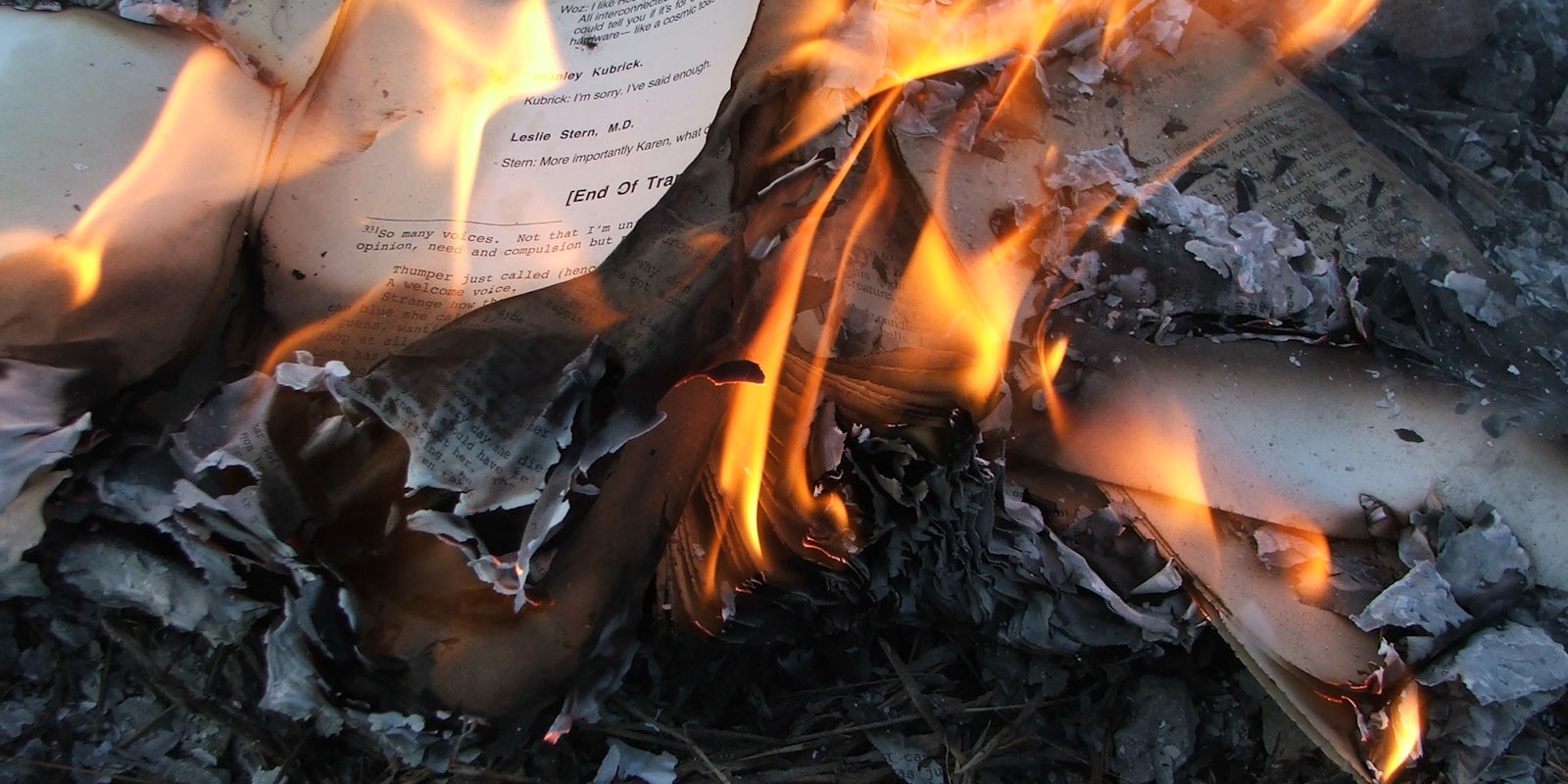A Dallas high school may be looking for a new keynote speaker for its upcoming literary festival—it’s kind of hard to speak at a school that’s banned your book.
Jeannette Walls’s memoir The Glass Castle is a harrowing account of a childhood spent living in poverty, but even though Walls was scheduled to speak at the Highland Park ISD book fest, the school district has yanked her book from its high school reading list, along with six others.
Parents flooded school board members with hundreds of outraged emails, demanding the books be pulled from their students’ teaching assignments. At a packed a school board earlier this month, they read out passages they deemed inappropriate—everything from descriptions of homosexual characters to anti-capitalist sentiments.
The authors of the seven books boast two Pulitzers and two Nobel Prizes among them, and count among their ranks the beleaguered Sherman Alexie, whose Young Adult novel The Absolutely True Diary of a Part-Time Indian seems to spend more time on ban lists than it does on bookshelves.
Also off the list is John Green’s popular novel An Abundance of Katherines, which came under fire for its depiction of teen sexualization.
Here’s the full list:
- The Absolutely True Diary of a Part-Time Indian by Sherman Alexie, flagged for its strong language. Alexie’s autobiographical novel won the National Book Award.
- An Abundance of Katherines by John Green, flagged for sexual situations. Green’s Young Adult novels have garnered a Printz and an Edgar award.
- The Art of Racing in the Rain by Garth Stein, flagged for a scene in which a teenager incites non-consensual sex with an adult.
- The Glass Castle: A Memoir by Jeannette Walls, which describes real-life incidents of abuse and domestic violence. Walls’ book, the recipient of multiple awards, is currently in production as a film starring Jennifer Lawrence.
- Siddhartha by Hermann Hesse, apparently offensive for its depiction of Buddhist philosophy and a main character who has unmarried sex, including with prostitutes. Hesse won the Nobel Prize in Literature in 1946.
- Song of Solomon, by Toni Morrison, which features sexual imagery and a narrative involving incest. Morrison has won both the Pulitzer and the Nobel Prize for her fiction.
- The Working Poor: Invisible in America by David K. Shipler, which came under fire for its true account of a woman who was raped in second grade and who later had an abortion as a teenager. Shipler was nominated for the Pulitzer Prize for International Reporting, and won a Pulitzer for General Nonfiction. The book was being taught as part of an Advanced Placement English course.
In addition to these seven, Jodi Picoult’s Nineteen Minutes, a novel about a school shooting, was pulled after an earlier administrative review.
Walls told the Dallas Morning News she was “heartbroken” over the decision to pull her book from the district’s reading list.
“What I worry is that in order to protect [students], we may be taking away the tools they need to protect themselves later on,” Walls said.
It’s clear the issue is a divisive one. Parents reportedly had very different reactions to the banning, with one parent stating her daughter was more upset that she couldn’t continue to study the book (The Art of Racing in the Rain) than she was about the allegedly offensive material the book contained. Another parent requested that the school board assign more “classics” to students instead of modern literature, though this doesn’t provide a rationale for why Siddhartha, published in 1922, raised objections.
It’s also worth noting that just sticking to the “classics” likely won’t help with another problem: Of the 239 books that made it onto the district’s assigned reading list, only 49 titles are authored by women, and only 39 women in total are represented on the list. The decision to pull works by Morrison, Wills, and Picoult makes closing a sizable literary gender divide that much more difficult.
District Superintendent Dawson Orr and high school principal Walter Kelly told parents the books they pulled will undergo a review phase involving several committees of parents, teachers, and students. The process, which repeats an administrative review of the books undertaken by the district’s director of assessment over the summer, will likely take several months.
In the meantime, students and parents can see—and protest—the approved list on the website of the Highland Park English department.
H/T Dallas Morning News | Photo via Wikimedia Commons (CC BY SA 3.0)


